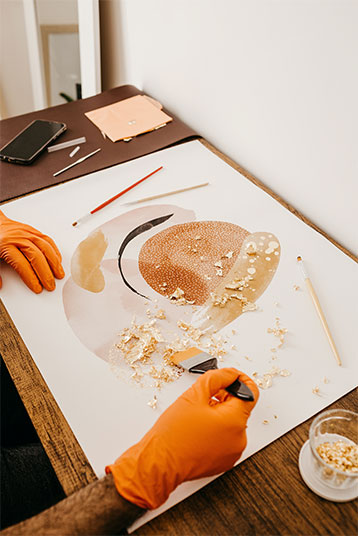
Don’t hide your emotions
When we are growing up we find ourselves constantly corrected between what we feel and what is happening around us. There is a two-way street with this information: what is happening in the outside world, what is affecting us, and therefore our reaction. When something is happening that we consider valuable, we react in a certain way, we cannot stop reacting to the things surrounding us, but we can act according to it, or against it. That is an emotion, the reaction to what is outside of us. We suffer for the simple reason that suffering is biologically useful. It is nature’s preferred agent for inspiring change.
It’s natural to have emotional reactions and form judgments about what’s happening, but it’s important to remember that our feelings may not accurately reflect the reality outside of ourselves. Our emotional response tells us about ourselves, not necessarily about the actual situation. Emotions and sentiments are like subtitles that accompany what’s happening, but they can sometimes be incorrect. It’s crucial to verify the facts before jumping to conclusions based solely on our impressions. The problem with the self-esteem movement is that it measured self-esteem by how positively people felt about themselves. But a true and accurate measurement of one’s self-worth is how people feel about the negative aspects of themselves.
When we feel certain emotions we might be enhancing the situation and judging what is surrounding us, once it has passed, we can see clearly and realize that it wasn’t that big of a deal. We need to be careful to judge ourselves when we feel an emotion, not by deleting it or denying it, but by taking our time to think about what is happening and what we feel about that. When “real traumatic shit” like this happens in our lives, we begin to unconsciously feel as though we have problems that we’re incapable of ever solving. And this assumed inability to solve our problems causes us to feel miserable and helpless.
In life, we encounter various circumstances that compel us to reflect on our actions and make choices. These choices bring about diverse outcomes, some of which may bring us joy, while others may cause us pain. The deeper the pain, the more helpless we feel against our problems, and the more entitlement we adopt to compensate for those problems.
1. I’m awesome and the rest of you all suck, so I deserve special treatment. I am blessed to suffer or to have this special quest upon me.
2. I suck and the rest of you are all awesome, so I deserve special treatment. I am nos worthy of what is happening and therefore I am a victim.
Things in life happen, here are laws and flaws and there is no special connection to what is happening to us, it is simply like that… Often, it’s this realization—that you and your problems are actually not privileged in their severity or pain—that is the first and most important step toward solving them.
Life doesn’t have a predetermined plan for us, things simply progress towards an end: perfection. That’s why as we live, we witness things evolving towards their best selves, just like us. We strive for happiness, and everything else fulfils its purpose. A lot of people are afraid to accept mediocrity because they believe that if they accept it, they’ll never achieve anything, never improve and that their life won’t matter» When in fact, we deserve what we do, with our actions, and most things will not be life-changing things, its simply an average day to live. «That’s because these things are ordinary. But maybe they’re ordinary for a reason: because they are what actually matters.
Being aware of what is happening helps us realize what life has to offer us, and self-awareness is a tool to realize how are we responding to our surroundings. Self-awareness is like an onion. There are multiple layers to it, and the more you peel them back, the more likely you’re going to start crying at inappropriate times. We need to acknowledge what we feel, in order to act according to what is happening and take responsibility for those actions.
Every day is perfect to take action on our decisions, we need to be aware of how are we judging them and how we are feeling about those judgments. Why do I consider this to be a success/failure? How am I choosing to measure myself? By what standard am I judging myself and everyone around me? Everything we think and feel about a situation ultimately comes back to how valuable we perceive it to be.
How we see things is a matter of perspective, we can see the glass half-full or half-empty, and both visions are true if we believe in them. Things just happen, and it is up to us to take them as good or bad things. Problems may be inevitable, but the meaning of each problem is not. We get to control what our problems mean based on how we choose to think about them, the standard by which we choose to measure them. Our values determine the metrics by which we measure ourselves and everyone else.




Deja una respuesta